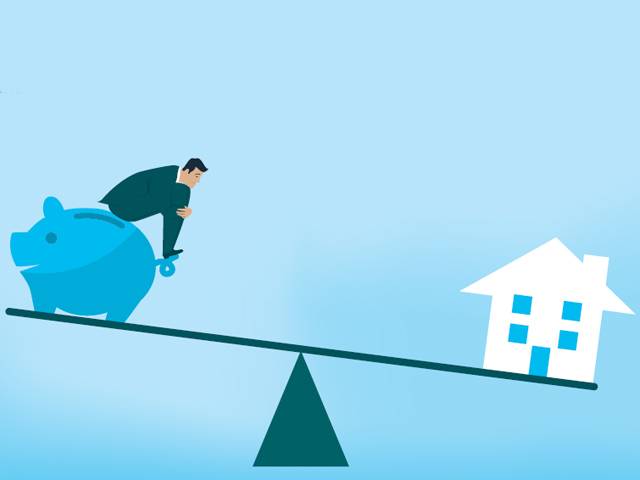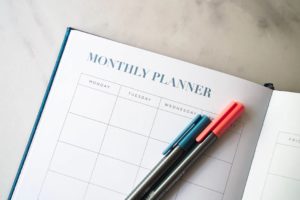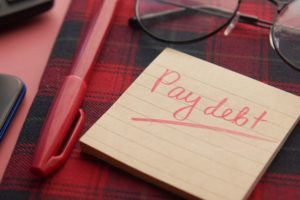Most people often wonder whether to pay off their debt or invest. However, the answer to this question is really complicated. In the current global situation, both paying off your debt and investing both necessary and admirable. There are different reasons to do both.
Paying off your debt means:
- Lower risks.
- Reduced stress.
- Greater ability to deal with personal emergencies.
Living a debt-free life will also make it easier for you to endure depression or an economic recession. You will have increased flexibility that will enable you to maximize your personal happiness.
Investing, on the other hand, means:
- Building an adequate reserve.
- Providing protection to you and your family.
- Providing you with other sources of passive income.
Investing most importantly means the accumulation of enough money so that you can retire comfortably.
How To Invest When You’re In Debt
Choose Wisely:

Given the benefits of both investing and paying off your debt, you may now be wondering what you should do. Theoretically speaking, there are two major things to consider when deciding what is the best course of action. These two aspects are:
- The rate of after-tax interest that you will have to pay on your debt.
- The after-tax rate of return that you can expect to earn from your investment.
To put it in other words, you must invest when you see that you can earn a higher return from the investment, compared to the interest on your debts. On the other hand, if the rate of return is low you must focus on paying off the balance on your debts.
You can put the money to work somewhere else in your investment portfolio and make lots of money in the long run, but this is not hypothetical and needs a lot of precautions and calculated decisions. Moreover, if you consider the risk adjustment factor, this may not always be the optimal choice. It is, therefore, necessary to follow set guidelines – perhaps from your personal financial planner – so that you can protect your money as well as your investment and interest, which in the end means you get the best of both worlds.
Essential Read: 100 Awesome Websites To Earn Extra Money By Working At Home
Making the right choice
It is not easy to make a decisive choice between which debts to pay off and which investments you should fund. Ideally, there is a hierarchy to follow:
- Start with funding any retirement account you have at work such as a 401(k) plan. Make sure that you fund up to the amount that you receive as free matching money. Ideally, most companies provide matching amounts that range between 50% and 150% of the first variable percentage.
- Always build an emergency fund in something that is highly liquid, such as an FDIC insured checking (or comparable) account or savings account.
- Depending on your eligibility, you may be able to fully fund a Roth IRA, but make sure that you check the limits of the contributions that may be imposed in any given tax year.
- If you have any debt carrying high interest such as credit card debt or student loan debt, pay it off as quickly as possible. Prioritize your debts according to your choice and affordability. Ideally, because a student loan is the most difficult to discharge in bankruptcy, it should be paid off first. To know more about it you are welcome to visit nationaldebtreliefprograms.com. Whatever you do, make sure you stick to your debt payment schedule.
- When you contribute to your 401(k) account, make sure it is up to the maximum amount that is permitted by the tax regulations and your savings plan.
- If you consider your retirement saving as something important, make sure you consider a strategy that comprises Health Savings Accounts. This will act as another type of de-facto IRA in addition to your Roth IRA.
Apart from that, you also need to focus on building assets, such as fully taxable brokerage accounts, directly held mutual funds, dividend reinvestment plans, and other cash-flow generating assets. You could even start a college 529 savings plan for your child or grandchild.
Reduce Your Debt Systematically
If you invest properly, you will achieve several things that will ease your financial condition, minimize your tax bill and provide more money in your pocket.
- You will be able to create enough bankruptcy protection for the retirement assets such as your employer-sponsored 401(k) retirement plan. This has unlimited bankruptcy protection as per the current rules – just like your Roth IRA.
- You will be able to reduce your debts significantly over time and ensure free cash flow. Only when all your other basic needs are fulfilled can you start making riskier investments in different taxable accounts.
- If you have a small retirement account and a lot of debt you should ideally avoid investing in IPOs. Alternatively, you should become completely debt-free and draw a line around your assets so that you do not have to worry about these being taken away from you due to non-payment.
Therefore, it makes more sense to pay off your debts first, and then begin investing. This will work very well for you as it has for many people in the long run.
The Bottom Line
The most significant thing that matters, when push comes to shove, is you and your behavioral economics. You will need to factor into your decision between investing and paying off debt. These factors are whether:
- You can and want to live with it.
- You are likely to stick with it till the time it is completed.
- You can sleep well at night.
You must have your end-game objective very clear as that will keep you going. Your objective should be to have no debt at all along with an abundance of lucrative and high paying investments. Proper asset allocation is the key here, to maintain a proper balance between the risk involved and returns promised. This will ensure a comfortable life for you and a high standard of living for your family. All it needs is a lot of patience, hard work, and calculated decisions to achieve this goal of financial freedom.
Read Next: How Much Money Do YouTubers Make: Let’s Take A Sneak-Peek





